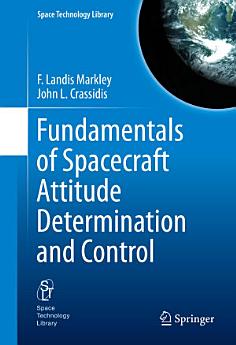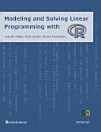Fundamentals of Spacecraft Attitude Determination and Control
Información sobre este eBook
Subject matter includes both theoretical derivations and practical implementation of spacecraft attitude determination and control systems. It provides detailed derivations for attitude kinematics and dynamics and provides detailed description of the most widely used attitude parameterization, the quaternion. This title also provides a thorough treatise of attitude dynamics including Jacobian elliptical functions. It is the first known book to provide detailed derivations and explanations of state attitude determination and gives readers real-world examples from actual working spacecraft missions. The subject matter is chosen to fill the void of existing textbooks and treatises, especially in state and dynamics attitude determination. MATLAB code of all examples will be provided through an external website.
Valoraciones y reseñas
Acerca del autor
Dr. F. Landis Markley has been a leader in spacecraft attitude estimation as well as one of the most important mission engineers. He joined the Computer Sciences Corporation in 1974 and established himself as an expert on all aspects of spacecraft attitude mission support. He moved to the U. S. Naval Research Laboratory in 1978 and to NASA Goddard Space Flight Center in 1985. Since 2010, he has been Aerospace Engineer Emeritus in Goddard's Attitude Control Systems Engineering Branch. He has supported more than twenty space missions, most notably the Hubble Space Telescope, the Tropical Rainfall Measuring Mission and the Wilkinson Microwave Anisotropy Probe. Dr. Markley is the author of many classic papers in spacecraft attitude estimation, dynamics, and control. He was one of the principal contributors to the book “Spacecraft Attitude Determination and Control” (Springer, 1978), which has been essential to the education of many astronautical engineers. He was elected Fellow of the AIAA in 1998 and of the AAS in 2007 and has been a Goddard Senior Fellow since 2000. He is a recipient of the NASA Exceptional Service Medal (1994 and 2005), the AIAA Mechanics and Control of Flight Award (1998), and the AAS Dirk Brouwer Award (2005).
Dr. John L. Crassidis is the CUBRC Professor in Space Situational Awareness of Mechanical and Aerospace Engineering at the University of Buffalo (UB). Currently, he is the Director of UB's Center for Multisource Information Fusion. Before joining UB in 2001, he held previous academic appointments at Catholic University of America (1996-1998) and Texas A&M University (1998-2000). He also held a position as a NASA Postdoctoral Research Fellow at Goddard Space Flight Center (1996-1998). While at NASA-Goddard he worked on a number of mission projects, such as the Tropical Rainfall Measurement Mission, the Geostationary Operational Environmental Satellite, and the Wilkinson Microwave Anisotropy Probe. He is first author to the book “Optimal Estimation of Dynamic Systems,” which is currently in its second edition. He was elected Fellow of the AAS in 2014 and Associate Fellow of the AIAA in 2002. He is a recipient of the AIAA Mechanics and Control of Flight Award (2012) and several teaching awards.







